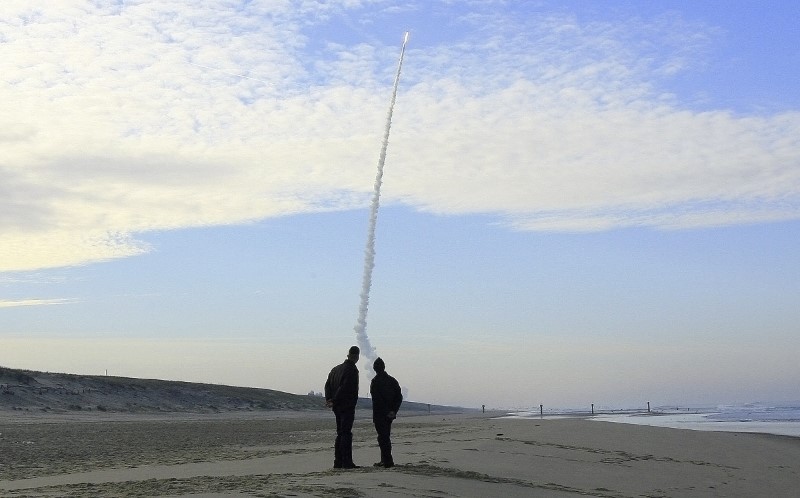WASHINGTON (Reuters) - The Trump administration is reviewing whether it will reaffirm the goal of a world without nuclear weapons, a White House aide said on Tuesday, referring to an aim embraced by previous Republican and Democratic presidents and required by a key arms control treaty.
Christopher Ford, the National Security Council's senior director for weapons of mass destruction and counter-proliferation, said an examination of whether global nuclear disarmament "is a realistic goal," would be conducted as part of a wider assessment called the Nuclear Policy Review.
Ford also said the administration is reviewing responses to Russia's deployment of nuclear-capable cruise missiles, which Washington has denounced as a violation of the Intermediate-Range Nuclear Forces (INF) treaty.
He downplayed the chances of new U.S.-Russia strategic nuclear arms cuts and said Washington would for now adhere to the Iran nuclear deal.
In negotiations scheduled to open next week, the administration also will oppose - as the Obama administration did - an international treaty abolishing nuclear weapons, he said.
Ford, the only senior nuclear policy official appointed by President Donald Trump since he took office in January, spoke to a nuclear policy conference put on annually by the Carnegie Endowment for International Peace, a Washington-based think tank.
His comments were the first by a top administration official that gave some indication of White House thinking on nuclear arms policy following a series of provocative comments and tweets that Trump made during and after the 2016 presidential campaign.
NUCLEAR-FREE WORLD
Trump has said that while would like to see nuclear weapons abolished, he wants the United States to have an unrivaled arsenal. He also said that the United States has "fallen behind" in its nuclear capabilities, even though it is in the midst of a 30-year, $1.3 trillion drive to modernize what most experts agree is the world's most powerful nuclear force.
Trump has supported the development of nuclear weapons by Japan, South Korea and Saudi Arabia, called for using nuclear arms against the Islamic State militant group and denounced the Iran nuclear deal as "a disaster" that he would "rip up."
Ford, a lawyer who has served as a Republican congressional staffer and a State Department arms control official, said he could not comment on many issues until the Nuclear Posture Review, or NPR, and other security and foreign policies reviews are completed. Experts expect the review to take as long as a year.
He also stressed that the reviews may result in continuing to follow policies pursued by former President Barack Obama.
But he said one issue being examined is whether the administration would reaffirm U.S. adherence to the goal of eventual global nuclear disarmament, an objective reaffirmed by Obama in an April 2009 speech in Prague.
"We are reviewing policy across the board," Ford said. "That necessarily includes reviewing, among many other things, whether the goal of a world without nuclear weapons is in fact a realistic objective in the near-to-medium term in light of current trends in the international security environment."
For decades, Ford said, there has been tension between the U.S. desire for nuclear arms abolition and the need to maintain "a robust and effective arsenal that is capable of ensuring our security and that of our allies in Europe and the broader Asia-Pacific region against both nuclear and non-nuclear threats."
An increasingly unstable world and growing threats to U.S. national security demand a review of "whether traditional U.S. fidelity to that visionary end-state of abolition and demonstrating fidelity to it by pointing to rapid progress in reducing arsenals is still a viable strategy," he said.

Daryl Kimball, executive director of the Arms Control Association, a Washington think tank, said the United States is legally bound to that goal as a signatory of the 1968 Non-Proliferation Treaty, the bedrock accord of the international system for halting the spread of nuclear weapons.